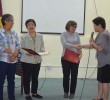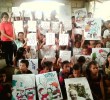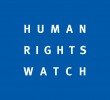We saw that this rule where might is right has given rise to fiefdoms, feudalism and the old tradition of warring tribes. Samurai warriors and terracotta soldiers served the vested interests of powerful vassals and lords. We had emperors, we had kings, and we had rulers and we used to call them sovereign. People were denigrated as subjects because they were subjected; and kings were raised to the levels of gods, and even their human caprices had to be endured.
The dawn of democracy ushered the sovereignty of the people, respect for human rights and the rule of law. In a democratic society, the people�s liberty cannot be restricted by any arbitrary power even if that were the wish of an institution, even if that were the will of an individual. In a democratic setting, there can be no restraint on the people except what they impose on themselves cast in a covenant known as the Constitution. Democracy and its tenets have spread like wildfire with the end of the bipolar world dominated by the US and Russia, after the last chapter of the clash of civilization has been written, and after the resurgence of capitalism as the dominant economic theology. Information technology, global communications, international commercial transactions and migration patterns have further fueled the fire of democratization. Globalization and liberal free trade are now buzzwords. I respectfully submit, however, that if globalization is to succeed, it should bring to us not just a safe world but more importantly, a better world to live in, a world where the roots of socio-economic rights of the poor will have better soil upon which to grow, to develop, and to last.
Indeed, in countries where the task of maintaining body and soul and together is getting more and more to be a mission impossible, man�s efforts should be focused in enhancing the socio-economic rights of the vulnerable in our society. For what good is not being arrested if one is already incarcerated by the prison of poverty? What good is freedom of expression if the only idea you can mumble are words begging for food? What good is freedom to think on the part of the ignorant who is even ignorant of his ignorance? What good is the right to property to him who is shirtless, shoeless, and roofless? What good are political and civil rights to those whose problem is how to be human?
Let me conclude by saying that total human liberation requires not only the preservation of political and civil rights but demands the enjoyment by our people of their socio-economic rights. Only then can we translate the dream of Rizal into reality that in every person there is self-worth that the State should bring to life. In Rizal�s immortal words: �[Because] every being in creation has his spur, his mainspring; man�s is his self-respect; take it away from him and he becomes a corpse; and he who seeks activity in a corpse will only find worms.� (Indolence of the Filipinos, La Solidaridad, Aug. 31, 1890, p. 194.)
As the light of the nation, I urge you to shine brightly in your chosen fields. Remember to keep burning that light of social awareness and social conscience and become truly, tanglaw ng bayan.
Again, congratulation to all the graduates!
* Delivered on May 4, 2007 at World Trade Center on the occasion of the conferment of the degree of Doctor in Public Administration, honoris causa by the Polytechnic University of the Philippines.
[1] Commission on Higher Education, Study on Higher Education Enrolment in Government and Private Schools by Discipline Group, SY 1999-2000 to SY 2000-2005 available through the NSO website.
****** INBOX is an archive of press releases, statements, announcements, letters to the editors, and manifestos sent to Davao Today for publication. Please email your materials to davaotoday@gmail.com. Davao Today reserves the right to edit or refuse material for publication. *****










